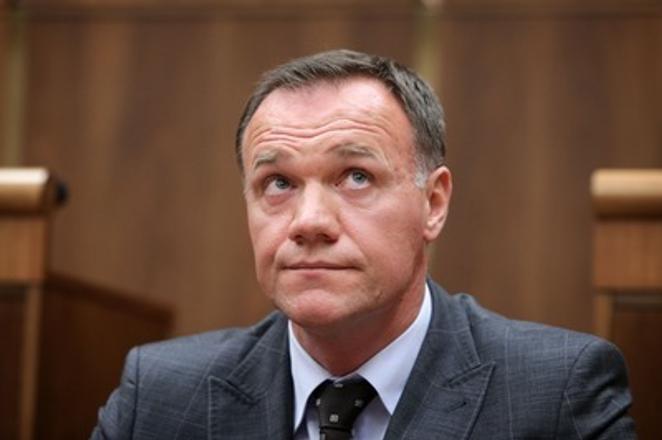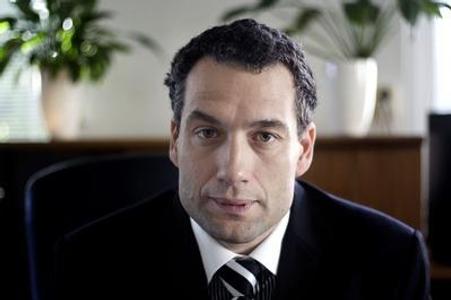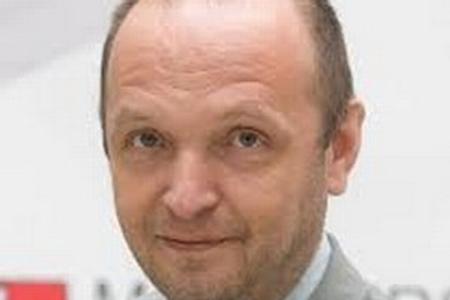First, the Sme daily broke the story on personal ties between firms competing in tenders of the state-run health insurer Všeobecná Zdravotná Poisťovňa (VšZP). Then MP Miroslav Beblavý of non-parliamentary party Sieť pointed to Health Ministry State Secretary Mário Mikloši signing contracts for his firm with VšZP even as he was already a top official at the ministry.
“The health care sector is very susceptible to corruption,” Zuzana Dančíková of Transparency International ethics watchdog told the Sme daily. “It is a sector with a lot of money and various actors therefore it is hard to observe and control.”
The Bonul case
On October 23 Sme reported that companies that have a common past and that have been connected via family ties competed in the tender to provide security services for VšZP. The contract, worth €1.6 million, was won by the Bonul company because it offered the lowest price. However, BMN Security which ended second offered mere €2,500 more in the tender. The former head of the BMN firm is Miriam Gombíková (nee Bödörová) who is the daughter of current Bonul director Miroslav Bödör.
Though Gombíková is technically not part of the BMN Security firm anymore, it is nonetheless still perceived as her firm , Sme wrote reffering to sources from another security firm who did not want to be revealed. Moreover, the history of Bonul described in its own webpage suggests that former Bonul’s name was BMN Security.
“Just the fact that firms with join history compete with each other slightly raises eyebrows,” Martin Turček of Transparency International said, as quoted by Sme.
What is more the record from evaluation of the tender mentions that both companies made the same mistake: they erred in the unit price offer for electric-installation strip – and both in the same way. After this was corrected by VšZP, they agreed with the new price and finally, Bonul won. Neither the insurer, nor the Health Ministry see anything suspicious in the identical price error, according to Sme.
“VšZP does not investigates suspicion over the public tender because it does not have the legal mandate for it,” VšZP spokeswoman Petra Balážová told Sme.
Successful firm
Bonul has found success in public tenders since 2009, when the Economy Ministry, at the time led by Ľubomír Jahnátek, started to order its services regardless of which political parties were at the helm. For example, the tender for guarding Slovak Post (SP) in which it gained €3.5 million was prepared under the previous, right-leaning government of Iveta Radičová, Sme wrote.
The security company has been thriving, and its revenues keep growing – as do its profits. Calculated in euros, it is more profitable than the Tesco retail chain. This is possible also thanks to contacts which seem to help Bonul: Bödör is a relative of Police President Tibor Gašpar, while Bödör’s son lives in the same neighbourhood of Agriculture Minister Ľubomír Jahnátek, Sme wrote on October 26.
Several companies told Sme, under the condition of anonymity, that they do not like to compete with Bonul, “as it wins in 90 percent of tenders”.
Conflict of interests
Three days after the Bonul story broke, Beblavý told the press that he filed a motion against Mikloši who owns a company called Uroflexx together with his wife. Mikloši was signing appendices to contracts with VšZP even after he assumed the office of state secretary in November 2014. This likely led to an improvement in the originally loss-making company when it closed 2014 with a profit of €21,000, according to Beblavý.
“The Health Minister and his state secretary are thus the direct superiors to VšZP management. So a person who as the only representative of the Health Ministry is the direct superior of the VšZP management, signs contracts with same management on behalf of his own company,” Beblavý told the press.
Beblavý added that the law prevents all public officials from engaging in commercial activities with state-run companies be it for their own benefit or for the benefit of friends and family.
The company recorded profits because the prices for its activities were raised not because Mikloši assumed the office of state secretary, according to Health Ministry spokesman Peter Bubla.
“The general financial volume in favour of Uroflexx was not increased by the contract appendices,” Bubla told The Slovak Spectator.
Moreover, Mikloši was not in fact signing the documents, even though his name appears on the documents, according to the Health Ministry. Uroflexx did not report to VšZP that Mikloši has been downgraded to a mere associate of the firm after he took office, therefore his name remains on the contract appendices, they said.
However, even if Mikloši’s signature is not under the appendixes he still exhibited a conflict of interests because he was company’s representative from 2006 to 2012 and led health department at the ministry since 2011 to 2014, according to INEKO think thank analyst Dušan Zachar.
“He should be prepared to proactively explain signing and content of all contracts of a firm close to him with state to minimise the risk of favouring [the company],” Zachar told the Denník N daily. “If he cannot plausibly do this, it is grounds for his removal.”
No-confidence vote
The opposition is set to attempt to oust Čislák at a parliamentary session on October 30. Opposition parties Christian Democratic Movement (KDH), Ordinary People and Independent personalities (OĽaNO) and Freedom and Solidarity (SaS) presented a proposal on a no-confidence motion in Čislák four days earlier. The ruling Smer party controls a full majority in parliament, meaning he is unlikely to be forced out unless Prime Minister Robert Fico asks him to step down.
The opposition parties object to what they describe as Čislák’s unwillingness to increase the level of transparency in health care and stop the so-called ‘tunnelling’ of state resources by private entities.
The awareness of health care scandals is growing among the general public, according to Dančíková.
“I see that pressure is growing,” said Dančíková, as quoted by Sme. “Increasingly we see that ordinary people are saying that actors in the health sector are stealing form sick people."





